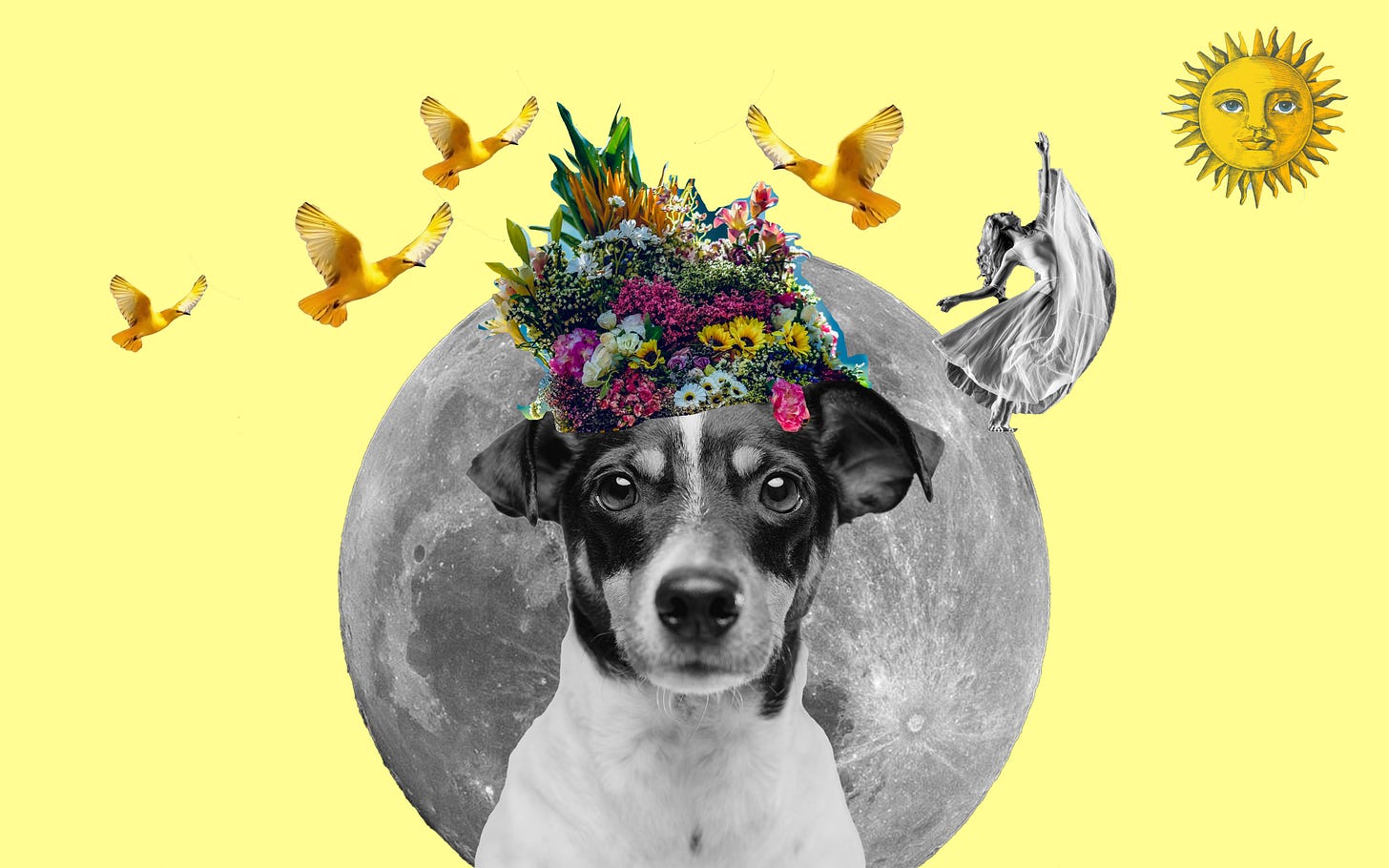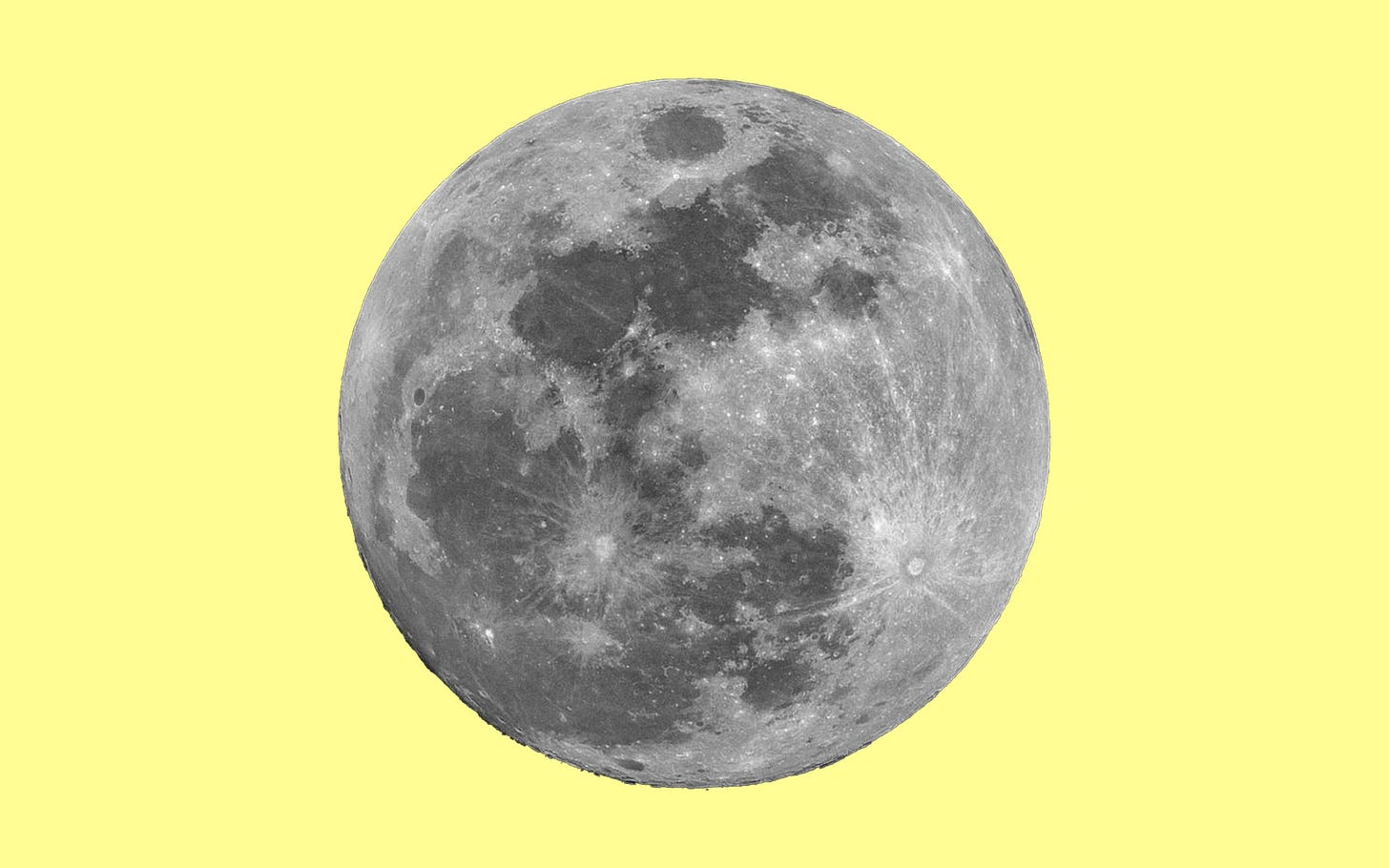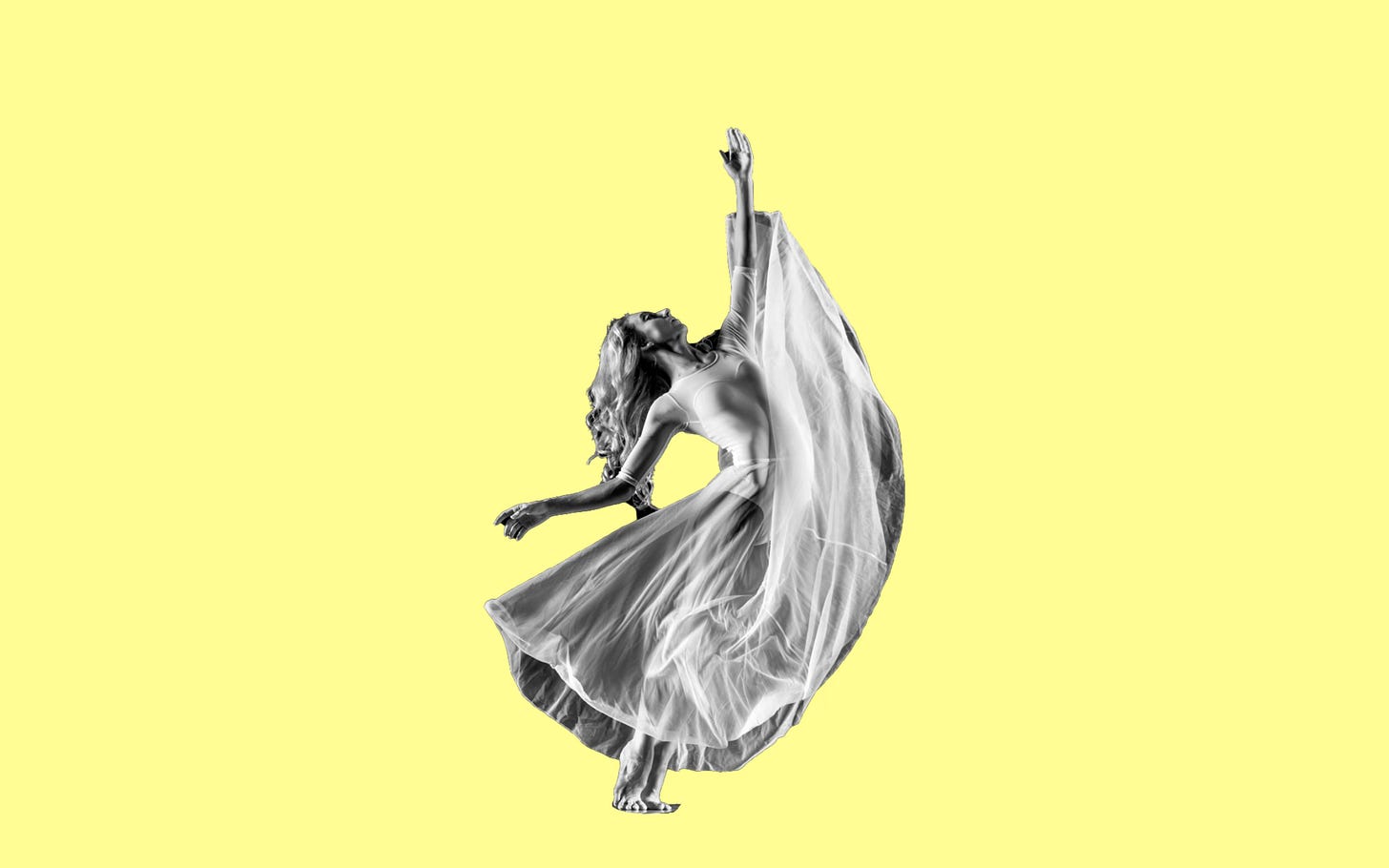Hello and welcome to wild:health where I share philosophy for personal and planetary health. Today’s essay was sparked by
from and his fantastic work around trust.Have you ever had the following experience: a neighbor collapses with a heart attack, a colleague receives a terminal diagnosis, an acquaintance dies unexpectedly - and suddenly, people begin talking. “He never exercised.” “She skipped her annual physical.” “They worked too hard.”
These comments can easily be mistaken as a blame of the individual. But they reveal something different: a quiet panic masquerading as reason.
In the face of randomness, our natural inclination is to grasp for patterns and to stitch causality from chaos to convince ourselves that tragedy is preventable - if only we eat the right foods, follow the right rules, master the right habits... .
If their suffering had reasons - and we can figure out what that reasons was - maybe mine can be controlled.
Mhhhh, this messy urge to control.
Beneath that urge is an even deeper terror: our crumbling capacity to trust life itself. When reality feels hostile and unpredictable, we don’t seek understanding - we literally armor ourselves with the illusion of control, mistaking vigilance for safety, and in the process, severing our ability to truly inhabit the messy mystery of being alive.
Curated Distrust
From childhood developmental research we know that when our caregivers fail to provide consistent emotional attunement - whether through neglect, unpredictability, or conditional love - we learn to armor themselves against vulnerability. While infants instinctively turn toward caregivers for safety, when they are met with rejection or inconsistency, they develop protective strategies such as dissociating from needs, numbing distress, or overcompensating with performative self-reliance. They develop unsecured attachment styles.
As adults, our societal caregivers - institutions, technologies, ideologies - have replicated this insecure attachment.
Our obsession with control is the logical endpoint of reductionist philosophies that severed us from life’s whole. Since the Enlightenment, WEIRD thought has framed reality as a machine of isolated parts to dominate, optimize, or fear.
“If you go back to early Greek philosophy in the period around 500 BC, you will find Parmenides, who is generally recognized as the earliest formative ancestor in the genealogy of Western philosophy. Parmenides issued a warning that we have heeded ever since: Don’t trust your senses - they will deceive you. Only reason can lead you to the truth! Now, 2,500 years later, Coates has shown that, even in a highly abstract environment, what the senses tell us - especially the interoceptors - is more reliable than our conscious reasoning.” Philip Shepherd
No wonder we’ve become over-controlling: As a fundamentally separate part, we learned to distrust life’s capacity to hold us, and we cling to rigid beliefs, productivity cults, or tribal identities - anything to give us a sense of control.
We’ve been taught to dominate rather than belong to the world. The roots of this crisis in trust are therefore relational: we’ve been conditioned to see the world as a collection of isolated parts to exploit or fear, rather than a dynamic, intra-dependent whole to participate in.
Our distrust is a logical response to living within these systems (infrastructural, but also mental).
Like a child raised by inconsistent caregivers, we’ve internalized reality as fundamentally unsafe - something to armor against rather than belong to.
And we are left feeling unwelcome in the universe.
The Cycle of Distrust
“As soon as you trust yourself, you will know how to live.” Johann Wolfgang von Goethe
Our fractured trust manifests in climate denialism, conspiracy thinking, and the commodification of attention - all symptoms of what psychiatrist Bruce Perry calls “maladaptive relational templates.”
Just as insecurely attached children struggle to regulate emotions, a society raised on separation philosophies cannot metabolize complexity. We fragment into mind/body, self/other, human/Earth binaries. Racism, ecological exploitation, and hyper-individualism become collective projections of our unprocessed vulnerability.
Distrust breeds distrust.
Ecological studies affirm that health arises through mutual adaptation, yet our systems enforce the inversion: we dominate ecosystems we depend on, exploit communities we belong to, and wage war on the very bodies that sustain us. We play zero-sum-games. And our institutions, markets, and technologies increasingly reward this dissociation - profit extracted from ecological collapse, identity forged through opposition, meaning reduced to personal branding. Meanwhile, the wounds of systemic inequality, ecological precarity, and algorithmic alienation compound into a visceral sense that reality itself cannot be trusted to sustain or nurture us.
Distrust played out at civilizational scale.
“One cannot be true to a society in which there is no trust.” Ian McGilchrist
The dynamics we see played out in children thus also play out in our relationship with reality and life itself. Just as the insecurely attached child learns to distrust the caregiver’s capacity to hold their pain, we internalize a worldview where reality feels similarly unreliable - unable to contain our imperfections, uncertainties, or existential grief. Our existential fears become projected onto social structures.
Reality though is a dynamic web of becoming - an unfolding of relationships.
“An ideology that insists that people act solely out of self-interest undermines peoples’ basic trust in themselves, in each other and in social institutions. It promotes cynicism, apathy and despair.” Sally Weintrobe
Practices for Reattunement
Trust in life cannot be forced or hurried. Just as you cannot command a child to feel secure, you cannot will yourself into trusting reality. As with most of what I share, there is no blueprint, nonetheless, some of the following practices might help:
Create Secure Base Experiments: Just as therapists help clients rebuild trust through gradual exposure, we can design low-stakes opportunities to lean into uncertainty. Immersion in unknown experiences can become laboratories for surrendering control. For me ISTA has been very helpful for that.
Relational Weaving: Healing occurs in communion. Secure attachment is nurtured through communities where pain can be shared without judgment - where we practice reality together. Rituals, dialogue circles, or collaborative stewardship projects can become transformational spaces where we experience intra-connectedness as lived truth.
Ecological Embodiment: To heal our distrust, we can recognize ourselves as expressions of the Earth. This means aligning our knowing (epistemology), being (ontology), and acting (ethics) with ecological principles. For example: When faced with decisions, we can ask how a forest would respond. Forests don’t hoard resources, they circulate them through fungal networks.
There’s no blueprint for trust, only the lifelong practice of showing up - not as armored individuals, but as permeable participants in reality’s unfolding.
As adrienne maree brown says:
“What we pay attention to grows.”
When we start tending to relationships we notice that life is not only about safety (though it also is), but also about attunement, which can only come through trust despite unsafety. Reality, like any good caregiver, doesn’t promise certainty - it offers something better: the chance to be held, challenged, and transformed by the very experience we’ve been taught to fear.
For deeper dives into trust-building frameworks, I highly recommend
‘s work.






To add a slightly more technical comment than my first, trust has no broadly agreed definition. Any time to try to 'define' we simplify, often unhelpfully. With this said, I work with the more process oriented definition that trust is the willingness to be vulnerable based on positive expectations. Our willingness to be vulnerable is impacted by our entire historicity (as far as I can tell. This really gives us our 'propensity to trust'), as is the process of establishing, acting in relation to, learning from etc. 'positive expectations'. In the broader context within which you refer to this (trust is often studied very narrowly using certain interpersonal / economic frames i.e. game theory etc.), I quite like the way Bill Plotkin frames the biosphere as being 'largely benevolent'. This is REALLY important because the three most important 'trust antecedents' (qualities of trustworthiness) are benevolence, integrity and (normative) competence. So if we internalise, irrespective of all the other complexity / nuance, the idea that the world is largely dangerous, that everything is literally trying to eat each everything else and our role is to just find some way to the top of whatever food chain we seek to climb, then it's incredibly challenging to be willingly vulnerable.
Gosh, I feel I could go down a bunch of paths here. I'll stop for now given my time constraints today, but would love to dialogue on this.
The idea of 'composting control' is wonderful. I've also been thinking these last days about ecological embodiment. I just had a discussion with the anthropologist Tim Ingold and in the conversation he says that the word embodiment has come to bother him recently, because it feels to him as though we are 'entombed' in our bodies, he questions the 'em' and asks why we don't just say 'bodily' ... ecological embodiment opens that up again.